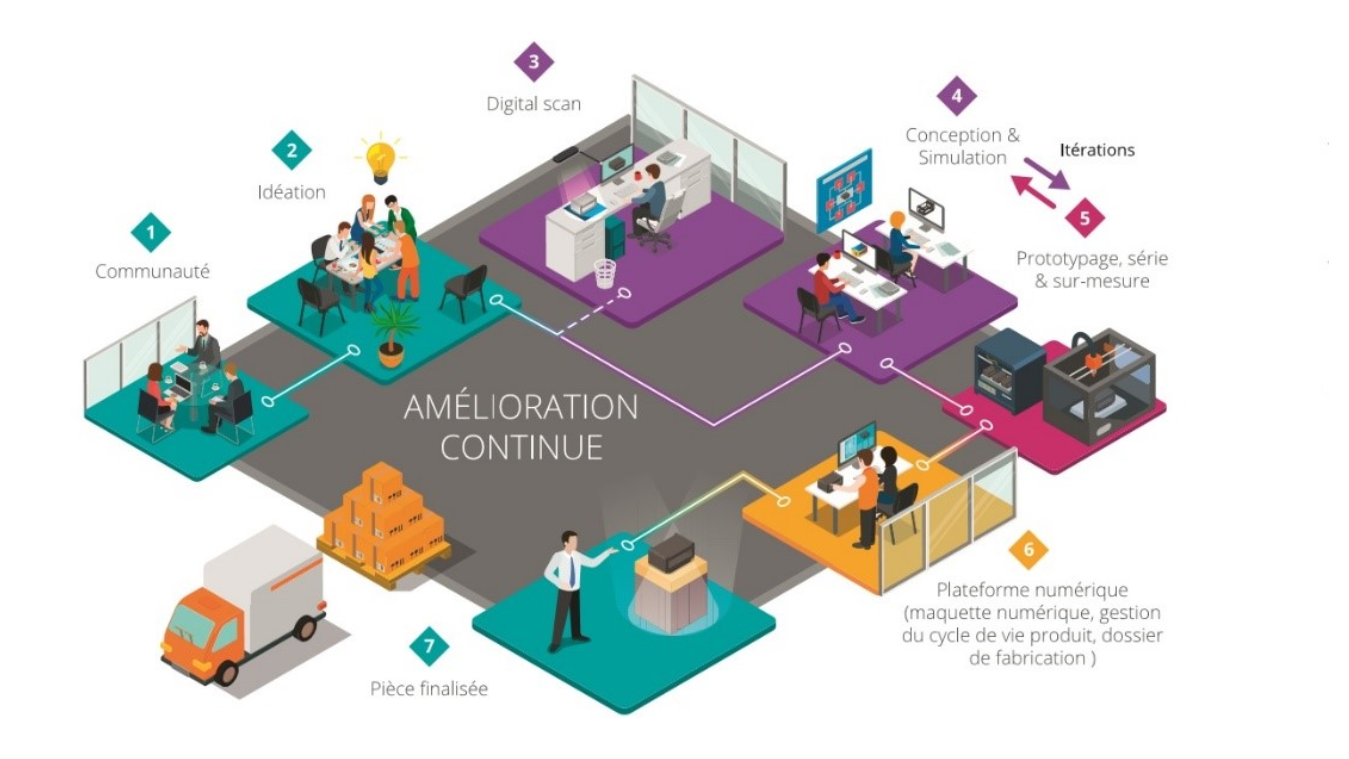Table des matières
ToggleApplications in Manufacturing Production
The industry 4.0 is increasingly transforming the way industrial equipment is used. Digital technologies such as the Internet of Things (IoT), artificial intelligence (AI), and augmented reality are revolutionizing production processes.
Connected sensors collect real-time data, enabling monitoring and predictive maintenance to identify potential failures before they occur. This reduces downtime and optimizes the use of resources.
AI analyzes this data to improve production processes. For example, it can optimize inventory management, forecast material needs, and adjust production lines to maximize efficiency.
Augmented reality is used to train employees and assist technicians by providing real-time instructions during equipment repairs.
- Internet of Things (IoT): Real-time monitoring, data collection.
- Artificial Intelligence (AI): Data analysis, process optimization.
- Augmented Reality: Employee training, technical assistance.
These technologies are becoming essential for manufacturers who want to remain competitive and meet the growing demand for customization and speed. The automation and flexibility offered by industry 4.0 allow for cost reductions while increasing quality and production speed.
Automation of Production Processes
The industry 4.0 is revolutionizing manufacturing production by integrating advanced technologies and interconnected systems. This transformation enables companies to increase their efficiency, reduce costs, and produce higher quality goods.
Among the applications in manufacturing production, the use of collaborative robots, smart sensors, and integrated management systems stands out. These technologies enable real-time monitoring and continuous optimization of production processes.
The automation of production processes is a key component of industry 4.0. It includes:
- The robotization of repetitive tasks
- The integration of automated quality control systems
- The use of artificial intelligence for predictive maintenance
These innovations ensure increased flexibility and reduced machine downtime. Thanks to these improvements, companies can respond more quickly to market demands and customize their products based on specific customer needs.
The transformation toward industry 4.0 also involves ongoing training for teams so they can adapt to new technologies and tools. Participation in conferences and specialized training is essential to staying at the forefront of technological advancements.
By adopting industry 4.0 solutions, manufacturers can significantly improve their performance while reducing their environmental impact through more efficient and sustainable processes.
Intelligent Supply Chain Management
The industry 4.0 is radically transforming manufacturing production through the integration of advanced digital technologies. These innovations enable the creation of smarter, faster, and more flexible systems.
Among the main applications, intelligent supply chain management stands out. It relies on the use of sensors, the Internet of Things (IoT), and real-time data analysis to optimize logistics and production processes.
- Real-time monitoring of stocks and raw materials
- Automation of orders and restocking
- Optimization of transport routes
- Reduction of delivery times
Intelligent management solutions provide increased visibility into the supply chain, allowing manufacturers to quickly respond to demand fluctuations and unforeseen events. This results in improved efficiency, cost reduction, and enhanced customer satisfaction.
The growing adoption of these technologies in manufacturing contributes to optimized processes, more agile production, and increased competitiveness in the global market. The future of production undeniably rests on these technological advancements.




